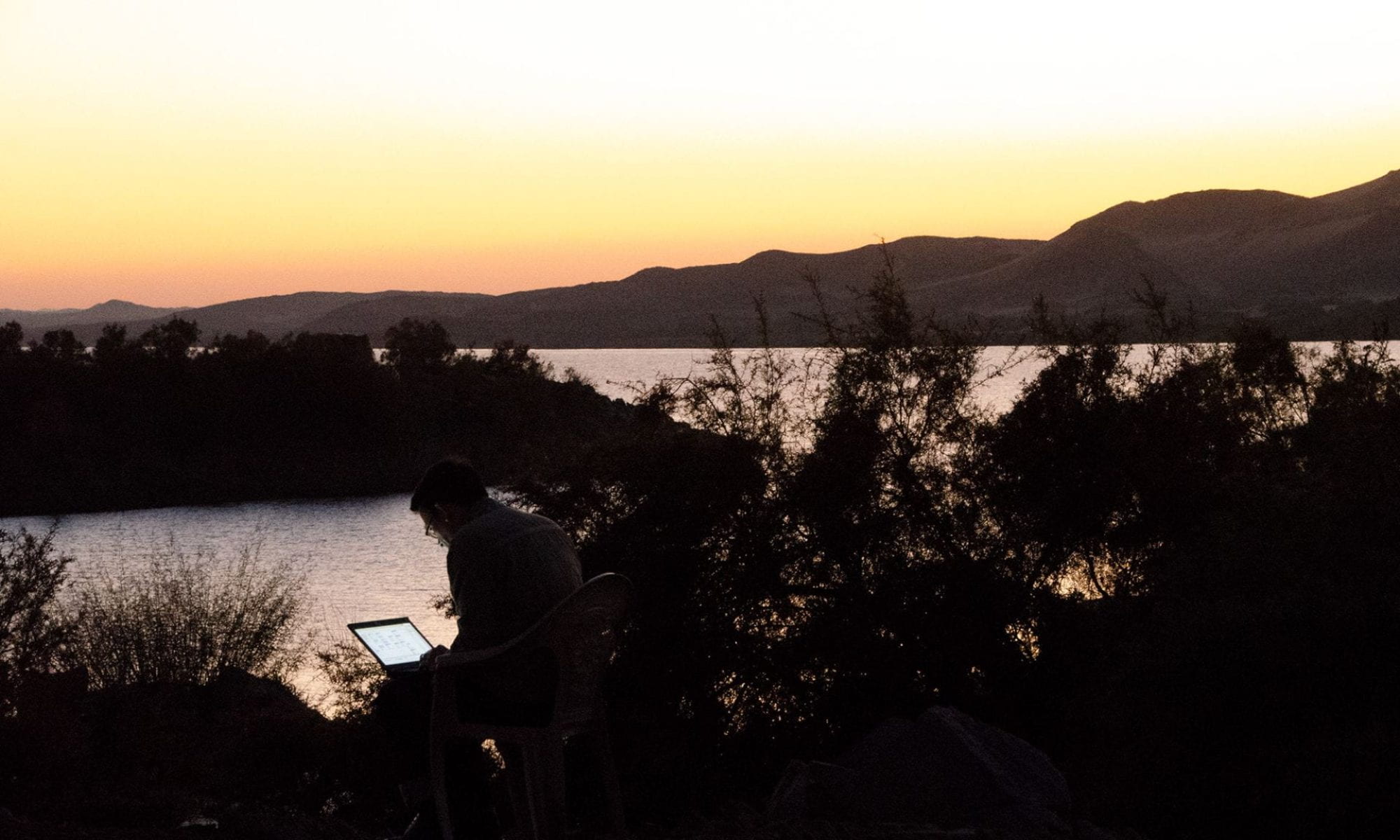There are other tablet-based archaeological recording systems out there. Why would you choose Kiosk? Choose it for what it can do now, for the expertise and attitude behind it, and for its expected growth and stability.
Kiosk Capabilities:
See for yourself! Here is a rather technical list of specifications. Or here you can take a walk through a video to see what Kiosk can do for you and why it is miles better than a database you can design yourself (can you bring together the data from every trench daily, or attach infinite images to each record type?) or other products out there (can you add someone to your project just to run your software?).
Kiosk Team:
Kiosk is not a hobby. It is a job, and a passion. We are not the product of an archaeologist with a coding bootcamp under the belt, nor of an engineer with a side interest in the ancient past. We are rather a team that brings together deep expertise and abiding interest in both archaeology and software design and development. Our core team consists of three people.
Lutz Klein is a full-stack software developer with more than 25 years of experience in synchronizing databases and software architecture. After decades as the managing director of a firm in Germany, he has rediscovered his joy in the hands-on intricacy of planning and implementing a complex software project. No flash-in-the-pan follower of trends nor an old-fashioned stick in the mud, Lutz’s software solutions are as solid as the bedrock beneath all the cultural layers, while utilizing late breaking developments as needed. As a Digital Technologist for Archaeology at Brown University, Lutz’s full-time profession is Kiosk. He makes martinis drier than the Sahara, and overcomes his dislike of being on camera to record tutorials for Kiosk users.
Laurel Bestock is a professor of archaeology at Brown University and a field archaeologist who has dug things up from Ireland to Sudan. She has more than 20 years directing excavations and survey in the Nile Valley. Her initial interest in archaeological methodology stems from her student days, when she worked on projects with strategies as different as purely narrative journaling and single-context form based recording. With Polaroid pictures attached. Attuned to the impossibility of making all archaeologists work in the same way, she deeply enjoys late night arguments about what an archaeological context actually IS, preferably over a dry martini.
Luiza Osorio G. da Silva is a professor of art history at the University of California, Irvine, who serves as Kiosk’s chief tester and outreach coordinator for new project recruitment. Her excavation experience runs from the Amazon to the Nile and her networks are similarly broad. A demon for meticulousness, Luiza can be counted on to catch (software) bugs and (real) scorpions. Dogs on site get fed and might end up with portraits in the recording software, but it is a cat she really wants.
All projects are invited to be as closely involved as you want. We learn – and develop solutions – in response to your needs and input. And if you are in Providence and you like discussing archaeological methodology and its implications for recording – we mean really getting heated about some things that most people don’t think about – well, come have a martini. Or a mocktail. We do that, too.
Kiosk in the Future:
Kiosk is not a commercial product. Our confidence in its longevity is dependent on our unique funding model, relying neither on grants of a sort that usually dry up after the initial development period nor on a subscription model that would place our product out of reach for most archaeological projects and require us to seek clients from different fields with different recording needs. We want to increase the use of digital tools in archaeology for the purpose of more thorough and more equitable recording and dissemination of information about the past. We are grateful to Brown University for fully funding the position in Digital Archaeology that allows this project to flourish, letting us be a little bit hippie in this excessively corporate era. With this support, we will continue to update and expand the capabilities of Kiosk and its network of projects, giving it a solid foundation for long-term usability.
